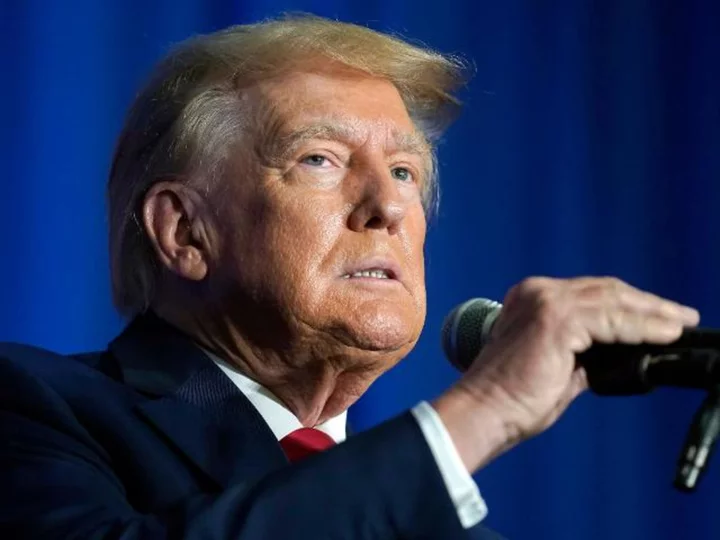
Trump's version of US election law rejected once and for all
The news Tuesday is that the US Supreme Court squarely rejected the fringe legal theory by which far-right activists and supporters of former President Donald Trump hoped to be able to ignore election outcomes.
2023-06-28 05:26
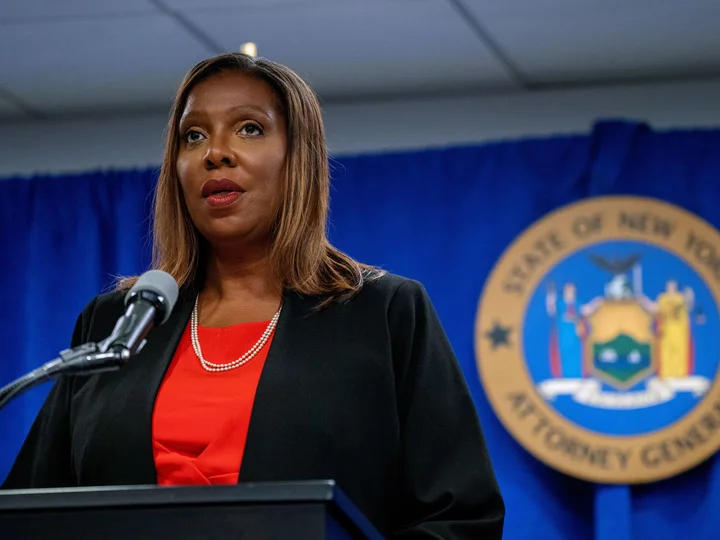
Ivanka Trump Freed From New York’s $250 Million Fraud Suit Against Family
New York state’s $250 million fraud lawsuit against Donald Trump, his company and three of his children is
2023-06-28 04:54
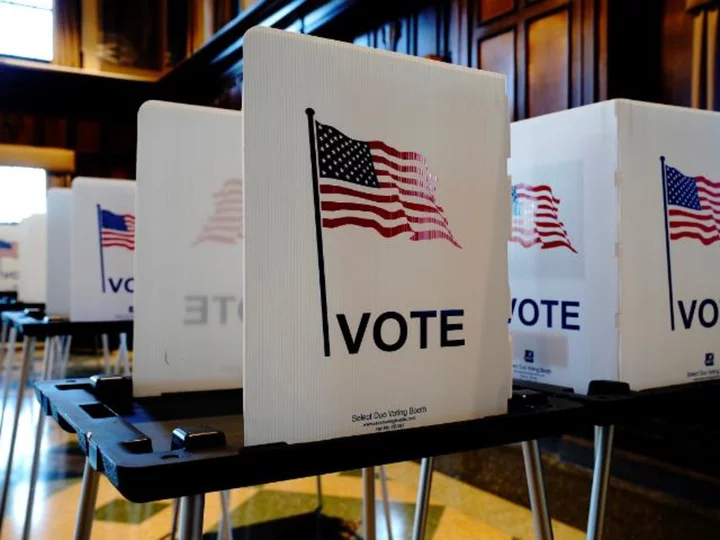
How the 'independent state legislature' theory, now rejected by SCOTUS, fueled chaos in 2020 and could influence 2024
The Supreme Court on Tuesday rejected a controversial legal theory that would've given partisan state lawmakers nearly unchecked power over US elections.
2023-06-28 03:56
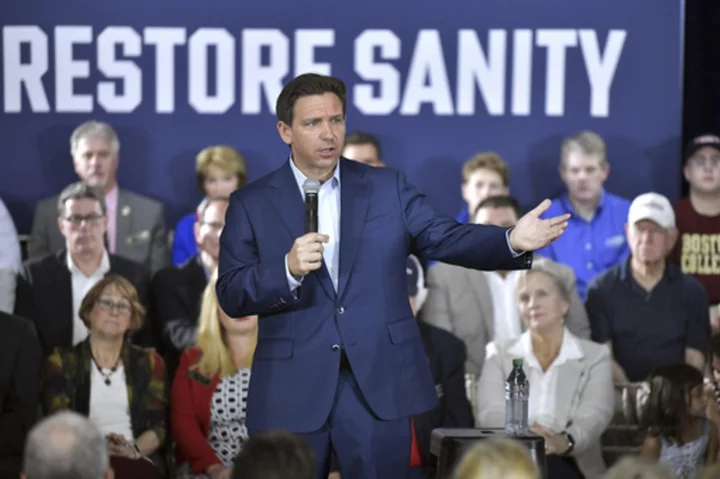
Trump and DeSantis trade barbs while staging dueling New Hampshire campaign events
Florida Gov. Ron DeSantis and former President Donald Trump are trading barbs as the two leading Republican White House candidates staged dueling events in the critical early voting state of New Hampshire
2023-06-28 03:25
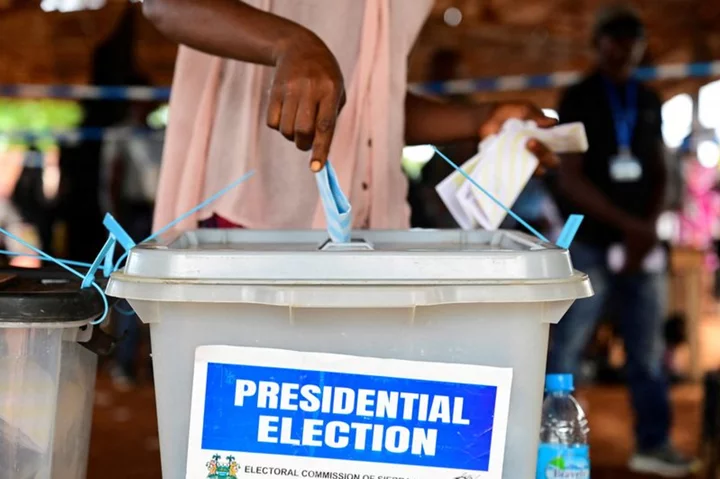
Sierra Leone president wins re-election, says electoral commission
FREETOWN (Reuters) -Sierra Leone President Julius Maada Bio secured victory in the West African country's presidential election with more than
2023-06-28 01:28
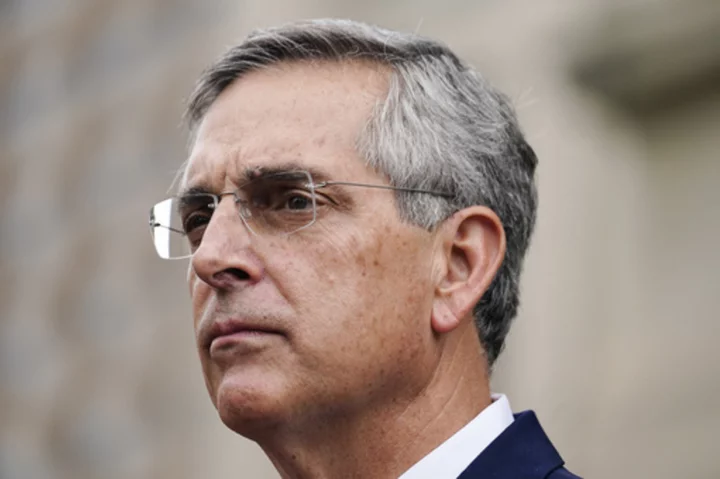
Georgia elections official to speak to federal prosecutors probing Trump's efforts to undo 2020 loss
Georgia Secretary of State Brad Raffensperger is scheduled to speak to federal prosecutors from special counsel Jack Smith's office
2023-06-27 23:50
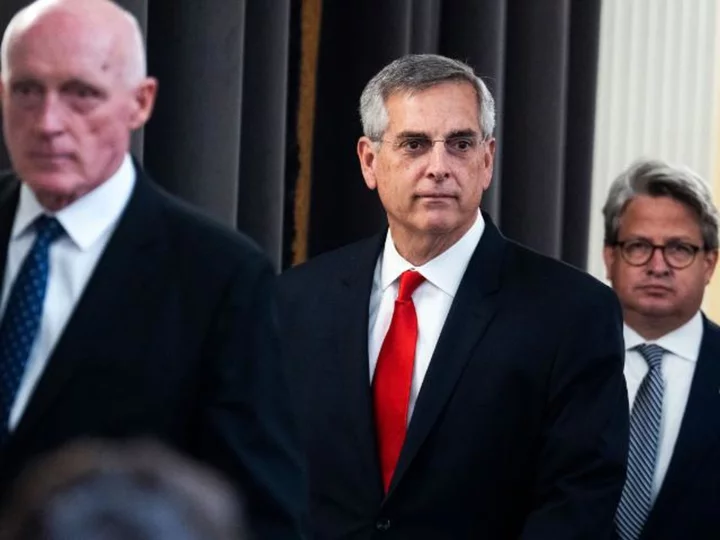
Investigators from special counsel's office to interview Georgia Secretary of State Raffensperger
Investigators from special counsel Jack Smith's office are set to interview Georgia Secretary of State Brad Raffensperger, as part of the federal probe into efforts to subvert the peaceful transition of power.
2023-06-27 23:27
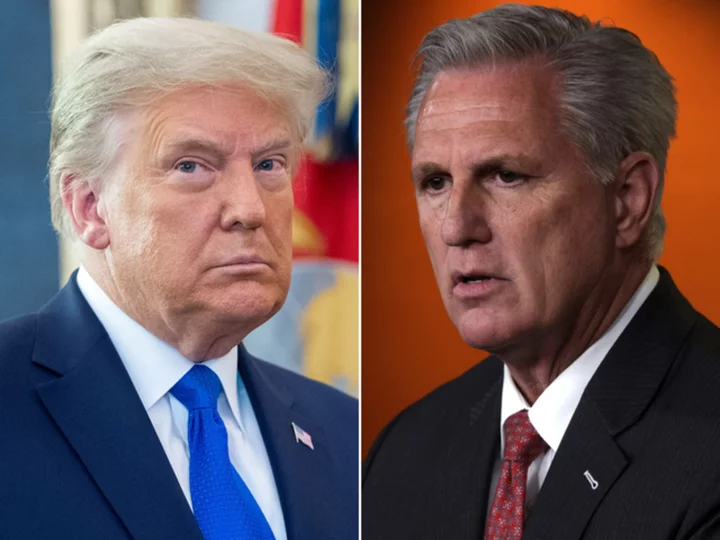
Trump allies outraged after McCarthy says 'I don't know' if Trump is strongest 2024 candidate
Advisers and allies to former President Donald Trump are expressing outrage after House Speaker Kevin McCarthy said that he thinks Trump can win in 2024, but does not know if he is the "strongest" candidate.
2023-06-27 23:22
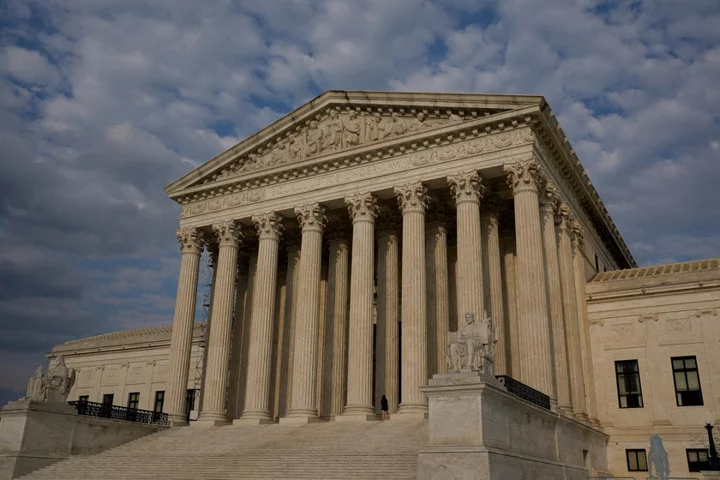
Supreme Court rejects fringe theory that could give GOP state lawmakers unchecked election authority
The US Supreme Court has shot down a fringe legal theory supported by Republican officials and Donald Trump’s allies that was invoked to toss out election results and radically reshape the nation’s elections. A 6-3 decision in Moore v Harper on 27 June determines that Republican-drawn congressional districts in North Carolina amounted to a partisan gerrymander that violated the state’s constitution, but the majority dismissed the so-called “independent state legislature” theory that fuelled the state’s arguments. Chief Justice John Roberts wrote the opinion, with support from Justices Sonia Sotomayor, Elena Kagan, Brett Kavanaugh and Amy Coney Barrett. Justices Clarence Thomas, Neil Gorsuch and Samuel Alito dissented. In oral arguments in the case last year, justices were warned that the high court’s endorsement of fringe legal theory could “sow chaos” in American democracy. The decision follows a lawsuit from a group of North Carolina voters and advocacy groups challenging the state’s Republican-drawn map of its congressional districts, which a state court rejected. Republican officials appealed to the Supreme Court arguing that the state legislature is granted exclusive power to regulate federal elections. A ruling from the justices that would uphold the GOP-drawn map would be seen as vindication for the fringe legal theory supported by many Republican officials and conspiracy theorists in their efforts to upend election outcomes and transform how the nation’s elections are run. The dubious theory – which animated Mr Trump’s spurious attempts to overturn election results in states he lost in the 2020 presidential election – could eliminate state constitutional bans against gerrymandering and other voting protections, potentially handing electoral control to Republican-dominated state legislatures that are primed to “rig” the next elections. After the 2020 presidential election, Mr Trump and his allies pressed state courts to overturn “unlawful election results” in several states he lost, based on bogus claims of fraud, and to let state lawmakers determine the outcome. All of those claims and court challenges were rejected. That fringe reading of the US Constitution went on to fuel GOP efforts to subvert election laws and change the rules of election administration across the US. In oral arguments in the case last year, US Solicitor General Elizabeth Prelogar warned that the court’s endorsement of the theory would “wreak havoc” on the electoral process and invalidate state constitutions across the country. “I’m not sure I’ve ever come across a theory in this court that would invalidate more state constitutional clauses as being federally unconstitutional,” added Neal Katyal, a former acting solicitor general under Barack Obama’s administration who argued the case on behalf of voting rights groups and Democratic voters in North Carolina. “The blast radius from their [independent state legislature] theory would sow elections chaos, forcing a confusing two-track system with one set of rules for federal elections and another for state ones,” he told justices. One reading of the theory argues that elected members of a state legislature have absolute authority to determine how federal elections – as in, elections for members of Congress and the president – are performed. State constitutional protections for the right to vote and efforts to combat partisan and racial gerrymandering could be overruled. A “nightmare” scenario could mean that a Republican-controlled state legislature that rejects the outcome of an election or objects to how it was administered – including the use of mail-in ballots or voting machines that have been subject to rampant, baseless conspiracy theories – could invoke the theory as pretext to refuse the results. Retired federal judge J Michael Luttig – who advised then-Vice President Mike Pence on 6 January, 2021 while under pressure from then-President Trump to reject the election’s outcome – has warned that the theory is a part of the “Republican blueprint to steal the 2024 election.” Dozens of briefs to the Supreme Court urged justices to reject the theory, from constitutional law experts, election officials and voting rights advocates to judges and prominent Republicans – including lawyer Ben Ginsberg, who worked on the landmark Bush v Gore case in 2000 that opened the door for the theory to take shape. Chief justices from state courts across the US wrote that the Constitution “does not oust state courts from their traditional role in reviewing election laws under state constitutions.” Without such barriers, courts will be “flooded with requests to second-guess state court decisions interpreting and applying state elections laws during every election cycle, infringing on state sovereignty and repeatedly involving the federal judiciary in election disputes,” they wrote in a filing to the court. A filing on behalf of the League of Women Voters said the theory could “throw election law and administration into disarray”. More than a dozen secretaries of state also warned that the “mistaken legal theory alien to our country’s history and this court’s precedent would have far-reaching and unpredictable consequences on our country’s elections.” The US Constitution’s election clause reads that the times, place and manner of federal elections “shall be prescribed in each State by the Legislature thereof; but the Congress may at any time by Law make or alter such Regulations.” The long-standing interpretation of that foundational clause is that election rules established by state legislatures must – like any other law – conform with state constitutions, which are under a court’s jurisdiction for review as to whether they are constitutional or not. “So if a state constitution subjects legislation to being blocked by a governor’s veto or citizen referendum, election laws can be blocked via the same means,” the Brennan Center explains. “And state courts must ensure that laws for federal elections, like all laws, comply with their state constitutions.” The Honest Elections Project, a Federalist Society-supported effort behind litigation involving state-level voting rules across the US, also supported the North Carolina case. The group invoked the fringe theory in a supporting brief filed with the Supreme Court, claiming that state legislatures are “vested with plenary authority that cannot be divested by state constitution to determine the times, places, and manner of presidential and congressional elections.” Moore v Harper “provides a timely opportunity to put these questions to rest,” according to the filing. Lawmakers in at least 38 states introduced nearly 200 bills that voting rights advocates and nonpartisan democratic watchdogs warned can be used to “subvert” election outcomes, building on a movement in the wake of 2020 elections to do in state legislatures what Mr Trump and his allies failed to do in court. The recently released analysis from the States United Democracy Center, Protect Democracy and Law Forward found that Republican state lawmakers advanced 185 bills that would make it easier for elected officials to overturn the will of their voters and make it harder for election workers to do their jobs. That total is on pace with similar efforts from previous legislative sessions. More than a dozen such bills introduced this year have been made law. Read More Supreme Court hears how the ‘blast radius’ of a radical legal theory could sow ‘election chaos’ How a fringe legal theory at the Supreme Court could blowtorch American elections Supreme Court rules Alabama discriminated against Black voters in major victory for voting rights Supreme Court rules against Navajo Nation’s access to drought-stricken Colorado River, despite US treaty Deb Haaland and Tribal leaders welcome Supreme Court decision upholding Indian Child Welfare Act
2023-06-27 22:52
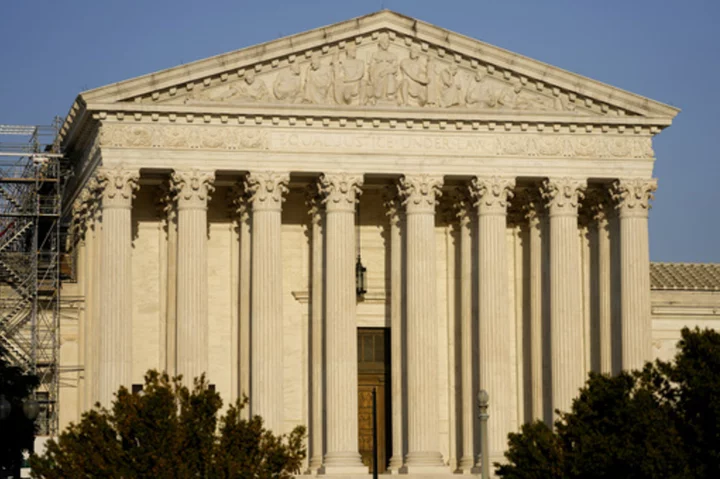
Supreme Court rules state courts can play role in policing federal elections
The Supreme Court has ruled that North Carolina’s top court did not overstep its bounds in striking down a congressional districting plan as excessively partisan under state law
2023-06-27 22:50
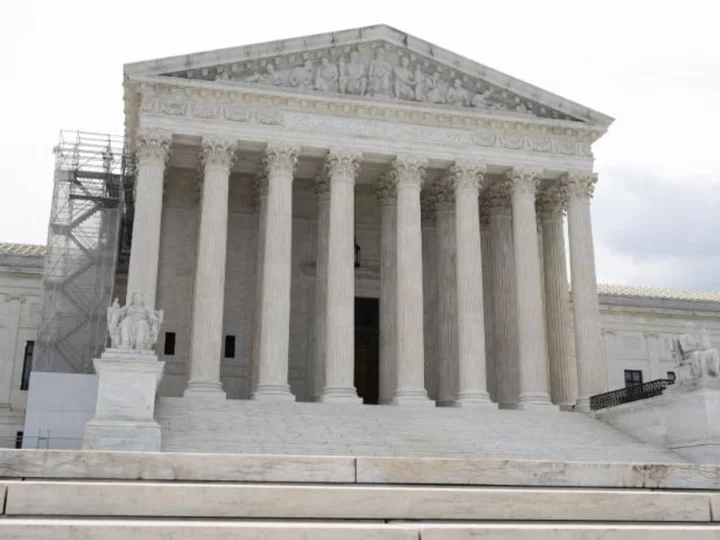
Supreme Court rejects controversial Trump-backed election law theory
The Supreme Court said Tuesday that the North Carolina Supreme Court did not violate the elections clause of the US Constitution when it invalidated the state's 2022 congressional map
2023-06-27 22:24
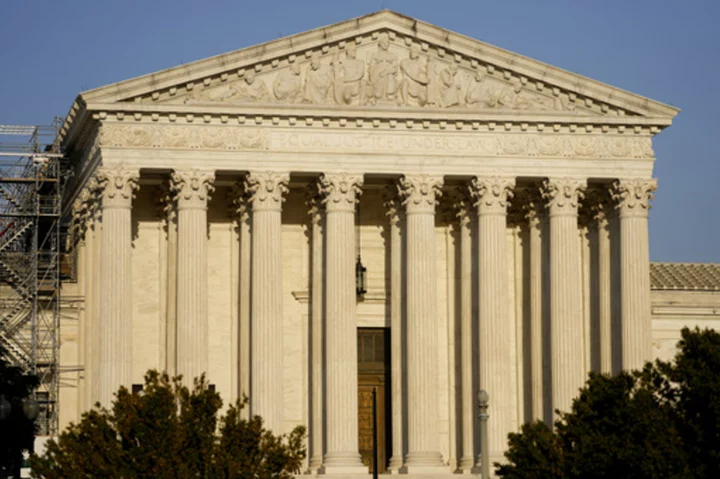
Supreme Court upholds North Carolina ruling that congressional districts violated state law
The Supreme Court has ruled that North Carolina’s top court did not overstep its bounds in striking down a congressional districting plan as excessively partisan under state law
2023-06-27 22:19
